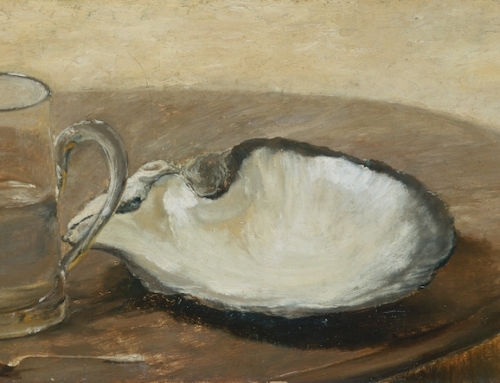Is “I’ve been blessed” “The one thing Christians should stop saying” about temporal goods? That is the premise of a blog post on The Accidental Missionary by Scott Dannemiller that has been making its way around social media. He claims that “calling myself blessed because of material good fortune is just plain wrong.” While the point he is trying to make is laudable, Dannemiller’s argument is itself just plain wrong.
The Gospels certainly emphasize the superiority of spiritual goods over material goods. For example in Matthew 6:19-20 Jesus exhorts: “Do not store up for yourselves treasures on earth, where moth and decay destroy, and thieves break in and steal. But store up treasures in heaven, where neither moth nor decay destroys, nor thieves break in and steal.” But does that mean that we cannot treat material goods as blessings from God?
Dannemiller points out that the Beatitudes (Matthew 5:3-12) offer a very different description of being blessed. “Blessed are the poor in spirit” and “Blessed are they who hunger and thirst for righteousness,” not to mention that the other six seem a far cry from, “This new car is such a blessing.”
But, important though it certainly is, must we limit our understanding of “blessing” to the Sermon on the Mount?
The Old Testament doesn’t shy away from calling material abundance a blessing. Consider the words of Abraham’s servant in Genesis 24:35: “The LORD has blessed my master so abundantly that he has become wealthy; he has given him flocks and herds, silver and gold, male and female slaves, and camels and donkeys.”
Even Job, whose suffering demonstrates the inscrutableness of God’s providence, ends up blessed with abundance. “Thus the LORD blessed the later days of Job more than his earlier ones. Now he had fourteen thousand sheep, six thousand camels, a thousand yoke of oxen, and a thousand she-donkeys.” (Job 42:12)
These Old Testament examples certainly seem closer to the sentiment in, “Finally closed on the house. Feeling blessed.” So did God give material blessing before and then stop? How do we reconcile the different biblical accounts of blessing?
When we speak of someone being blessed, there are actually two different things we can mean. (1) They are in the state of blessedness, or (2) they have received some blessing.
In Matthew 5:3-12, Jesus is talking about people in the state of blessedness or happiness. The blessed are those who have achieved the ultimate goal of life. The Latin word for this happiness is beatitudo, from which we get the name “Beatitudes.”
In the other, perhaps more common, way of speaking, when we say that someone is blessed, we mean that they have received some good thing from the Lord, as in the case of Abraham or Job mentioned above. Anything good we receive from God counts as blessing in this sense.
While it’s clear that Christ wants us to prefer spiritual goods to temporal goods, material well-being is not beyond his concern. Even as Jesus rails against devotion to money and goods, he promises to meet our physical needs. “So do not worry and say, ‘What are we to eat?’ or ‘What are we to drink?’ or ‘What are we to wear?’ All these things the pagans seek. Your heavenly Father knows that you need them all. But seek first the kingdom (of God) and his righteousness, and all these things will be given you besides.” (Matthew 6:31-33)
In answering whether or not it is okay to pray for temporal goods, St. Thomas explains that while it is not lawful to desire temporal things principally, as if the goods of the earth are our ultimate end, we can desire them as “as helps whereby we are assisted in tending towards beatitude,” since they are “means of supporting the life of the body, and are of service to us as instruments in performing acts of virtue.” He concludes that we legitimately pray for the temporal things we need for these purposes (STh. I-II q. 83 a. 6).
An answered prayer is certainly a blessing. But even if we never asked for it, every good thing ultimately comes from God (cf. Jas 1:17). In his providence, God orders everything, even the outcomes of football games. So if we have a new car, business success, or a nice house, it is because God in some way wills us to have these things. They are blessings in the second sense.
Everything a Christian does should be ordered toward life with God, the ultimate blessing. But this doesn’t mean that we shouldn’t also call the temporal goods God gives us as an aid to attaining that ultimate end a blessing. If a Christian can’t call his new car a blessing, he should sell it.
✠
Image: Paolo Veronese, Rebecca at the Well







